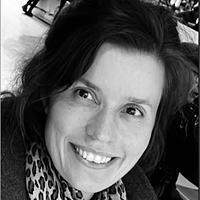In 2005, the United Nations General Assembly designated January 27—the anniversary of the liberation of Auschwitz-Birkenau—as International Holocaust Remembrance Day.
Today, the world marks 80 years since the liberation of Auschwitz and observes International Holocaust Remembrance Day.
Historians estimate that approximately 1.1 million people perished in Auschwitz during its less than five years of existence. The majority—around 1 million—were Jews.
Due to the pivotal role Auschwitz played in the Nazi extermination plans, it is globally recognized as a symbol of the planned annihilation and murder perpetrated by Nazi Germany, particularly the destruction of Jewish communities in Europe.
Auschwitz has become the emblem of terror, genocide, and the Holocaust. It is remembered as the ultimate instrument of evil, while its liberation remains a powerful symbol of triumph over that evil.
However, Auschwitz Day is not only about remembrance; it is also a call to action against anti-Semitism in all its forms.
The Danish Jewish Community Information Center estimates a 1,200% rise in antisemitic incidents since October 7, 2023. In other countries, this increase might be even higher.
We must reaffirm our commitment to combating anti-Semitism, especially in these troubling times, when Jews are once again living under rising threats.
Today, it is more important than ever to recognize the critical lessons of the Holocaust as we commemorate the victims and honor the survivors.
There is a famous poem in Hebrew called “Every Person Has a Name,” which reflects on the impossibility of comprehending the enormity of six million Jewish victims and emphasizes the importance of remembering individuals.
I would like to mention today the name of Zalmen Gradowski (1910–1944).
In December 1942, Zalmen was deported to Auschwitz along with his entire family. During the selection process in the camp, he lost his wife, mother, and two sisters.
He was forced into the Sonderkommando in Birkenau, enduring the unimaginable task of handling the bodies of those murdered in the gas chambers. Zalmen was one of the prisoners who took part in the Sonderkommando revolt of October 1944. He was likely killed either during the uprising or in the brutal reprisals that followed.
Zalmen left behind two manuscripts written in Yiddish, which he hid in the ground at Birkenau. These were discovered after the war. I will quote from his writings:
“Who was prepared to believe that millions of people were being seized for no reason whatever and led to slaughter by multiple means?
Who was prepared to believe that a whole people were led to destruction at the diabolical will of a gang of contemptible criminals?
Who was prepared to believe that a people would blindly obey a law leading to death and destruction?”
Who was prepared to believe that a whole people were led to destruction at the diabolical will of a gang of contemptible criminals?
Who was prepared to believe that a people would blindly obey a law leading to death and destruction?”
He also wrote these heart-wrenching words at the end of his manuscript:
“It may be that this, these very lines I am writing, will be the only witnesses to what was my life. But I will be happy if my writings reach you, free citizen of the world. Perhaps a spark of my inner fire will ignite in you, and you will fulfill at least a part of our life’s desire.”
By mentioning his name and reading his words today, we can give Zalmen Gradowski a voice. We can bear witness to his tragic, short life.
Turning to the present: two weeks ago, I accompanied the Danish Foreign Minister, Lars Løkke Rasmussen, on a visit to Israel.
As we know, the last 16 months have been among the most challenging periods for Israelis and Jews around the world since the Holocaust. During this visit, both Israelies and Danes shared the hope that the ceasefire and the anticipated return of all hostages will bring some calm to all those affected.
As part of his program in Israel, Minister Rasmussen visited Yad Vashem, Israel’s national Holocaust memorial. It was a deeply moving moment for me, as Israel’s Ambassador to Denmark, when we entered the section of the museum that recounts the heroic rescue of Danish Jews.
Yad Vashem underscores that even in the darkest times, there were rays of light. The museum itself is designed as a dark tunnel leading into light.
One of those rays of light was the actions of the Danish people in October 1943. We will always remember and remain grateful for this heroic chapter in Danish history. We also thank the Danish government for its continued efforts to combat anti-Semitism today.
Exactly five years ago, in January 2020, I participated in the 75th anniversary commemoration of the liberation of Auschwitz at Yad Vashem, alongside many world leaders, including Danish Prime Minister Mette Frederiksen.
It was a monumental event that emphasized the need to remember the Holocaust and fight anti-Semitism. Little did we know then that, five years later, on the 80th anniversary, the world would be grappling with such turmoil—following a global pandemic and two major wars.
Unfortunately, we have learned that global instability often exacerbates antisemitic and racist incidents.
We must remain vigilant and committed to combating these terrible phenomena. This is essential for building a better future—for ourselves and for our children.

